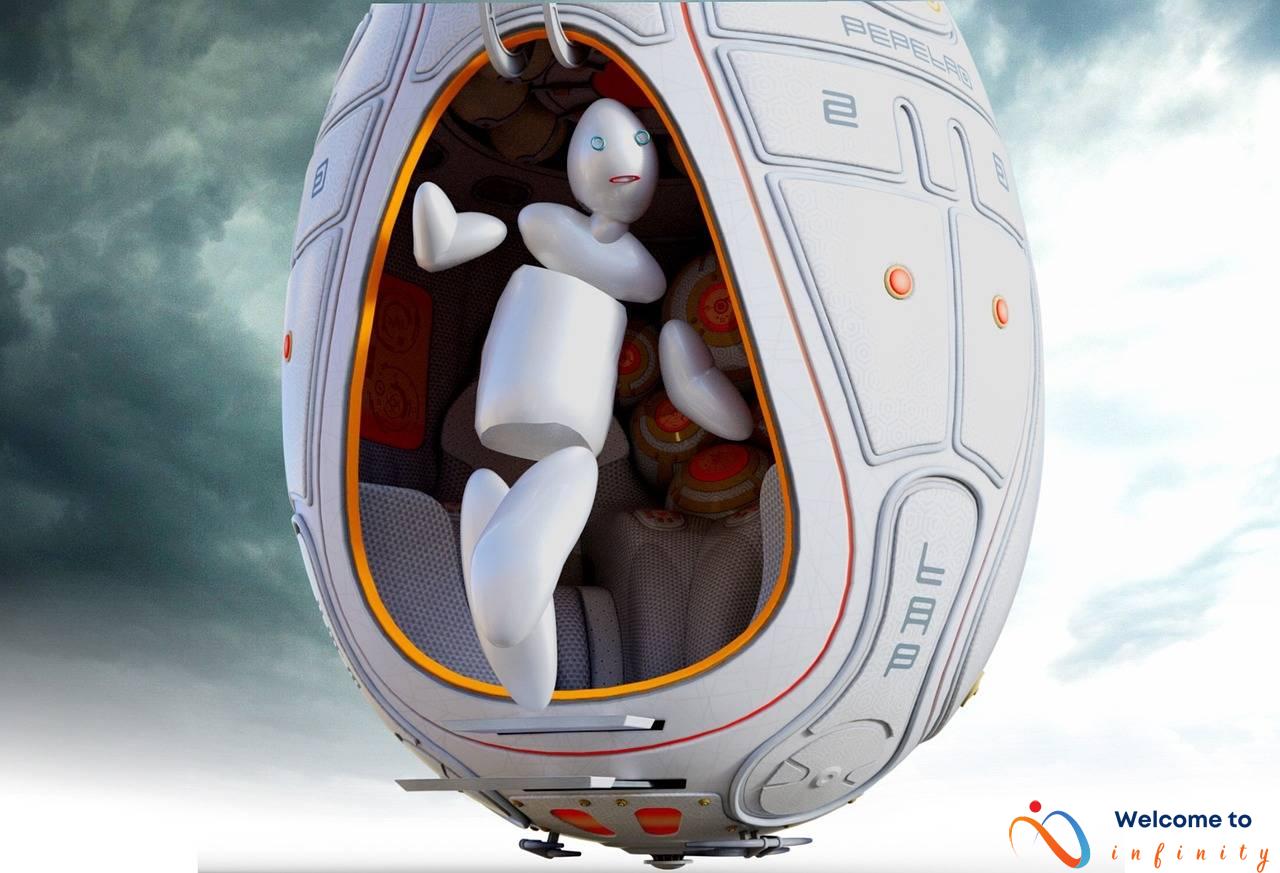Urbanization is an accelerating trend that has significantly impacted city living. With increasing population density, resource management challenges such as traffic congestion, energy consumption, and waste disposal are prevalent in cities worldwide. Addressing these issues is critical to ensure a better quality of life for urban residents. This is where AI and smart cities come in to provide innovative solutions to improve urban planning and resource management.
AI technologies offer real-time data analysis, enabling city planners and administrators to manage resources and infrastructure more efficiently. By collecting information from sensors and devices embedded in the urban environment, AI can make data-driven decisions, leading to optimized resource utilization.
Some of the ways AI and smart cities work together to enhance urban living include real-time traffic management, smart energy management, waste and water management, and smart building maintenance. Real-time traffic management systems can control the flow of vehicles while reducing congestion and improving safety. With sensors that collect data and communicate with each other, these systems prioritize emergency vehicles, reduce traffic emissions and fuel consumption.
Smart energy management systems can monitor and optimize power consumption, reducing electricity bills and carbon footprint. They use big data analysis to predict energy consumption, optimize energy storage, and turn off non-essential equipment to save energy. Smart grid systems manage demand fluctuations, reduce electricity bills, and increase the power grid's reliability. AI-powered smart grid systems can identify issues before they occur and suggest corrective actions, ensuring an uninterrupted power supply.
AI-powered waste and water management systems can save significant resources by predicting and mitigating the impact of water leaks and waste disposal. These systems can identify the most significant water and waste management challenges and take measures to reduce waste and manage resources more efficiently. AI technologies can also identify and mitigate environmental risks such as water contamination, unplanned events, and climate change. By analyzing complex data, decision-makers can prioritize environmental sustainability.
Smart building maintenance systems use AI-powered predictive maintenance to identify potential issues before they become problems, reducing maintenance costs and downtime. AI algorithms optimize temperature, lighting, and humidity levels, improving occupant comfort and reducing energy consumption. Responding to occupancy patterns can reduce energy usage in unoccupied spaces, enhancing the indoor environment's quality.
Real-time Traffic Management
In today's cities, traffic congestion is a significant problem, causing delays and frustration for commuters. Fortunately, AI-powered traffic management systems offer an efficient solution to this issue. With the use of sensors and real-time data collection, these systems can control the flow of vehicles, improve safety conditions, and reduce traffic emissions.
Traffic management systems monitor the traffic on roads, highways, and intersections, collecting data to make real-time traffic decisions. They use AI algorithms to analyze traffic patterns, identify potential bottlenecks, and adjust signal timings to optimize traffic flow. Additionally, emergency vehicles receive priority treatment, allowing them to reach their destination quickly and efficiently.
Reducing fuel consumption and emissions is another benefit of AI-enabled traffic management systems. Traffic management systems reduce idling and stop-and-start driving, which are significant sources of CO2 emissions. By improving traffic flow, fewer cars are stuck in traffic, resulting in a reduction in fuel consumption and emissions.
In conclusion, AI-powered traffic management systems provide an efficient solution to traffic congestion in cities. By monitoring traffic patterns, strategically adjusting signal timings, offering emergency vehicle priority, and reducing fuel consumption and emissions, these systems can provide safer and more efficient urban roads.
Smart Energy Management
With the increasing demand for sustainable and efficient urban living, AI-powered energy management systems play a critical role in reducing carbon footprint and electricity bills. Smart cities heavily rely on AI-enabled energy management systems that monitor and optimize building power consumption. These systems utilize big data analysis to predict energy consumption patterns, allowing buildings to allocate energy efficiently and save costs.
AI-powered systems can automatically turn off non-essential equipment, such as lighting and air conditioning, when buildings are unoccupied, resulting in significant energy savings. Additionally, AI algorithms can identify energy-intensive areas and recommend energy-efficient equipment replacements or retrofits to reduce energy consumption further.
- Big data analysis helps optimize energy storage
- Smart energy management systems can predict and respond to energy demands
- AI-powered systems can detect and diagnose equipment failures
Overall, the implementation of AI in energy management systems is essential in enhancing smart cities' sustainability and energy efficiency. Through AI's data-driven insights, buildings can reduce carbon footprint, eliminate energy waste, and allocate resources efficiently. Moreover, the use of AI in energy management systems can aid in identifying new sustainable practices that pave the way towards a greener future.
Smart Grid Systems
Smart Grid Systems have revolutionized the way we think about energy management. With AI algorithms at their heart, smart grid systems can monitor and respond to fluctuations in demand in real-time, improving the reliability and efficiency of the power grid. By predicting energy usage patterns, smart grid systems can reduce electricity bills and optimize energy storage, ensuring an uninterrupted power supply.
AI-powered smart grid systems can also identify issues before they occur and suggest corrective actions, saving time and resources. These systems can monitor the performance of power generation equipment and identify potential failures or issues, reducing downtime and emergency repairs. By prioritizing emergency services during outages, smart grid systems can minimize disruption and increase overall resilience.
Smart grid systems can also identify the most energy-efficient routes for energy supply to reduce carbon emissions. With the ability to analyze data from energy sources and consumers, smart grids can optimize energy flows and reduce energy waste, ensuring energy is used effectively.
Overall, smart grid systems have enormous potential to improve energy efficiency and reduce costs for both consumers and energy providers. By leveraging AI technologies, smart grid systems can ensure a reliable and sustainable power supply, supporting a cleaner and greener energy future.
Waste and Water Management
Waste and water management in urban areas can be challenging due to increasing population and resource scarcity. However, AI-powered waste and water management systems have brought about a significant transformation in how these resources can be managed efficiently. AI algorithms enable systems to analyze data and identify the most significant water and waste management challenges. The systems use this data to reduce waste, manage resources more efficiently, and mitigate the impact of water leaks and waste disposal.
One essential feature of AI-powered waste and water management systems is their ability to monitor and predict the impact of different human activities on water and waste disposal. The system can predict the incidence of water leaks and take corrective measures before the leakage causes damage. Additionally, it can identify areas where waste disposal is inefficient and take necessary actions to reduce waste.
The benefits of AI-powered waste and water management systems are numerous, including reduced environmental impact, cost savings, and effective resource management. These systems can generate significant cost savings by reducing water consumption, waste generation, and operating costs. Moreover, by reducing waste, these systems support the implementation of circular economy principles, preserving natural resources.
- Benefits of AI-powered waste and water management systems:
- Reduced environmental impact
- Cost savings through efficient resource management.
- Effective and sustainable waste and water management
- Support for circular economy principles.
AI-powered waste and water management systems are a game-changer for urban planning and resource management. The systems' capabilities to monitor, predict, and mitigate resource waste and environmental impact are essential in creating a more sustainable future for cities.
Reducing Environmental Impact
AI-powered systems offer the potential to monitor and mitigate environmental dangers caused by climate change, water contamination, and unplanned events. These systems can analyze complex data collected from various sources, such as IoT devices, satellites, and social media, to understand the impact of human activity on the environment. AI technologies can make data-driven decisions that prioritize environmental sustainability, reduce waste, and prevent environmental degradation.
One way AI technologies can reduce environmental impact is through predictive modeling. Data generated by predictive models can assist in reducing carbon footprint by analyzing the most sustainable paths to take in terms of resources. In addition, AI-powered sensors and devices can collect real-time data on environmental conditions, such as air quality, water quality, temperature, and humidity, in urban areas. The data collected can be used to identify potential risks to the environment, including water scarcity, air pollution, and soil degradation.
Another way AI can reduce environmental impact is through smart agriculture practices. AI-powered systems can collect data, including weather conditions and soil quality measurements, then use the analyzed data to predict crop patterns and improve yield. This technology can reduce the amount of land needed for farming, reduce the amount of water required for irrigation, and minimize the use of harmful pesticides.
AI technologies can assist national and municipal governments in creating smart and sustainable urban planning policies. Data can be analyzed to identify areas with high emission levels and overcrowding, where steps can be taken to alleviate societal and environmental stresses. In addition, AI-powered systems can provide insight into the sustainability of new buildings and infrastructure, such as energy use and carbon footprint.
In conclusion, the potential benefits of AI technologies in reducing environmental impact through smart cities are enormous. Data-driven decision making, predictive modeling, and smart agriculture practices represent a key opportunity to mitigate the impact of numerous environmental challenges. These systems' ability to monitor environmental conditions and reduce waste offers a significant step towards creating a sustainable future.
Smart Building Maintenance
Smart Building Maintenance is a crucial aspect of urban planning, which aims to enhance the quality of life in cities through efficient resource management. AI-powered predictive maintenance systems can help identify potential problems before they occur, reducing maintenance costs and downtime. These systems can continuously monitor building systems and equipment, predicting equipment failure and recommending maintenance actions.
With the help of advanced sensors and algorithms, smart building maintenance systems can detect equipment deterioration, wear and tear, and deviations from normal operating conditions. They detect and analyze data from sensors, including vibration, temperature, humidity, airflow, energy consumption, and equipment runtime, to identify potential issues that require attention.
These systems can accurately predict equipment failures, allowing for proactive maintenance interventions that reduce downtime and enhance operational efficiency. By predicting and preventing equipment failure, they can also help save energy and reduce repair costs.
Moreover, smart building maintenance systems can also recommend maintenance actions that optimize equipment performance and extend equipment lifespan. By prioritizing maintenance based on the predicted equipment failure risk, they can help building managers allocate resources more effectively and reduce maintenance costs.
In conclusion, smart building maintenance systems based on AI technologies can significantly improve urban living by predicting and preventing equipment failure, reducing maintenance costs and downtime, and enhancing energy efficiency and equipment lifespan.
Enhancing Occupant Comfort
Smart building systems are revolutionizing the way we experience indoor environments. They integrate with AI algorithms to optimize temperature, lighting, and humidity levels, ensuring occupant comfort while reducing energy consumption. With AI sensors, these systems can identify how many people are in a room and adjust environmental settings accordingly. Consequently, they can detect and respond to occupancy patterns, reducing energy usage and enhancing indoor air quality.
Moreover, smart building systems can predict and remedy potential issues before they happen, eliminating the need for manual adjustments and costly troubleshooting. With predictive maintenance, building managers can save significant costs on energy and maintenance expenses.
Smart technologies also allow building systems to adjust to human preferences. This personalization increases individual satisfaction and is particularly helpful in shared spaces that accommodate different occupants at different times. Additionally, these systems have the ability to learn and memorize the preferences over time, allowing the adjustments to become automatic and effortless.
Smart indoor environmental technologies that integrate with AI are becoming increasingly sophisticated. They are designed to enhance occupant comfort, support energy efficiency and sustainability, and reduce costs. As we move toward building smarter and more efficient cities, these technologies will undoubtedly play a critical role in creating sustainable, efficient, and comfortable urban environments.










